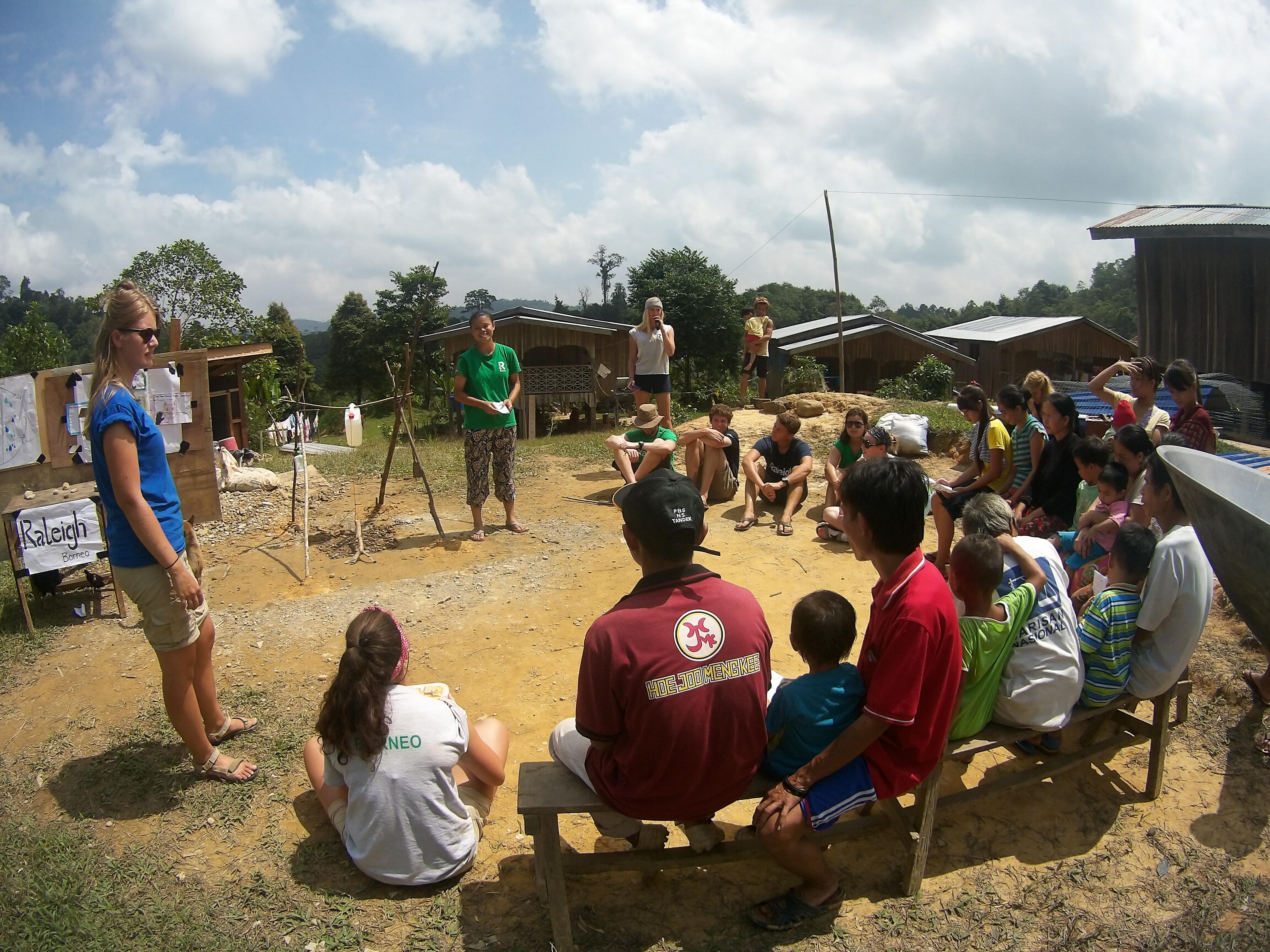
From Cheltenham originally, I trained at the University of Nottingham and spent my Foundation Years in the Trent Deanery. An interest in tropical medicine occurred early, even before I attended medical school, during work experience in Mumbai, India and an eye-opening experience during an elective in Kathmandu, Nepal. Having finished my FY2 in August, I spent three months volunteering as a medic with Raleigh International in Sabah, Borneo. Raleigh International is a charity that focuses on sustainable development through youth leadership and aims to drive and inspire positive change. The charity is dedicated to working towards the Sustainable Development Goals (SDGs) and which we have been learning more about over the first few weeks of the DTM&H course.
In Borneo we started off with a two-week volunteer manager induction in the heart of the capital, Kota Kinabalu. This involved learning how to set up and use a long-distance communication radio transmitter, how to use a machete and jungle survival skills. As medics we delivered teaching to our colleagues about first aid, health and hygiene and also ran a mock casualty evacuation exercise on the practice trek. When the young venturers finally arrived, we as project managers led them through their training. The medics subsequently interviewed all the venturers to ensure their medical cards were up to date, as well as giving advice regarding anti-malarials.
For the first phase, I was based in a remote village called Sonsogon Paliu, which was an eight-hour journey from base camp. The roads were a challenge even in 4x4s and we got stuck several times and had to dig our way out! It was amazing to be there as we were the first non-Malaysians ever to enter this small village of only 100 inhabitants. They had a failing gravity-fed water system (GFWS) – our task was to replace the damaged pipes, put in three water collection tanks and distribute pipes to all houses. We also built a double 'tandas' (toilet), as they had no toilet facilities in the village. One of the critical features of the project was ensuring that the work we undertook was sustainable; we worked in conjunction with the local people who then took ownership of these projects, so they could continue to maintain and repair the GFWS. The venturers also led education sessions to raise awareness about the importance of sanitation and hygiene, notably focusing on handwashing. The hope is that this will lead to a reduction in disease and improve the standard of living. It really was an invaluable opportunity to live with the local community and learn more about their culture and customs, which as we have learnt on the DTM&H is intrinsically linked to health beliefs and practices. The work completed there made a real difference to the lives of the people living in Sonsogon Paliu, as collecting water is extremely arduous, time consuming and often dangerous in bad weather – to the extent that some have lost their lives.
On phase two, I embarked on a 17-day trek through the Crocker Range. This was an absolutely incredible journey, not only for the spectacular scenery, but also because of the visible personal development of the young venturers and the added value of the expertise of the local guides who taught us about the jungle and how to survive there. Trek medicine proved to be a fascinating challenge, without the luxury of the equipment one comes to rely on in the hospital setting – for example, I had to fashion a blue light out a headtorch and a blue toilet paper wrapper in order to identify corneal abrasions. It was interesting to learn about the local guides’ traditional anti-venoms, a selection of different tree roots, and the challenge this posed from an evidence base perspective when one of the venturers sustained a poisonous centipede bite.
In the last phase, I was the medic at field base, living in a house with the rest of the field base team. Having washed in a river for over six weeks, it was a welcome change to be able to use a shower and flushing toilet, and to sleep in a bed! Here, my role was to provide medical advice and guidance to groups out in the field using the radio transmitter and to liaise with the UK team. This involved the management of common medical problems, as well as more serious ones and planning medical evacuations when necessary. This proved to be an interesting mix of both common conditions and some tropical diseases, including leptospirosis and paratyphoid. I was able to get an insight into the local healthcare system in the assessment of local hospital facilities and creation of a casualty evacuation plan, in addition to facilitating the medical treatment of the venturers when necessary.
My experiences in Borneo increased my desire to further my knowledge of tropical medicine and so it was a perfect homecoming to learn on my return to the UK that I had been accepted onto the renowned DTM&H course in Liverpool. The first two weeks have certainly not disappointed - they have been jam-packed with lectures, lab work and seminars, most notably a recent seminar from experts in their field on the newly emerging Zika virus. Personal highlights to date include meeting such a friendly group of people with so many diverse experiences, Salsa lessons and sampling the local Liverpool cuisine. What more could you want?